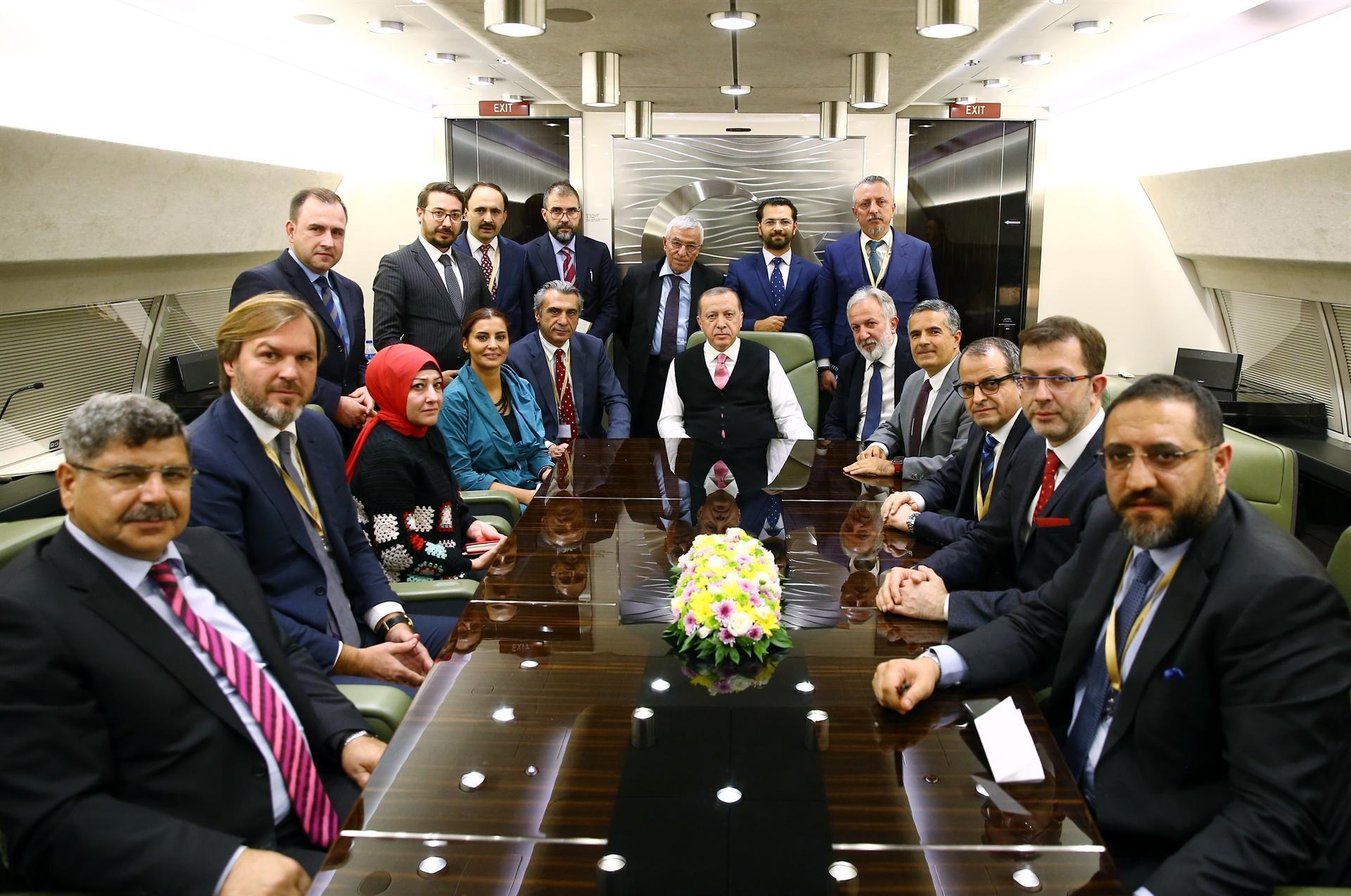Turkey may soon close the Iraqi border: Erdoğan
Hande Fırat - ANKARA

Turkey may soon close its border with Iraq, if Baghdad “continues to provide the humanitarian needs of northern Iraq,” President Recep Tayyip Erdoğan has said.
“Our talks [with Iraq] on what we can do are continuing. If they [the Iraqi Kurdistan Regional Government] hand over the border gate to the central government, we’ll set the condition [that the central government] must meet all the needs of the people under the northern Iraqi administration. We have not yet closed the gates, but this could happen at any time,” Erdoğan told reporters while returning from Poland late on Oct. 17.
He said a delegation of “three or four ministers” from Ankara, under Foreign Minister Mevlüt Çavuşoğlu, could visit Baghdad soon and Iraqi Prime Minister Haider al-Abadi could then come to Ankara upon his invitation “to evaluate all issues together.”
Recalling that Ankara explained its opposition to the KRG’s independence referendum to the leaders of the KRG a number of times, Erdoğan accused the Arbil government of “trying to seize Kirkuk and other regions like an occupying force.”
“Now [different Kurdish groups] are at odds with each other, accusing each other of selling them out,” he said.
Upon a question of the role of the Shiite Iranian-backed Hashd-i Shabi militia, Erdoğan denied claims that Turkey is in indirect cooperation with the group.
“There is news that Hashd-i Shabi has seized the Sinjar and Makhmur regions. If this is real, then we might have to start new work with our counterparts,” he said.
US delegation in Ankara
On the ongoing visa crisis with the United States, Erdoğan said a delegation from the U.S. State Department held talks in Ankara on Oct. 18.
“I don’t see this as a long-lasting problem. I hope talks will yield results in the shortest period of time and our relations will return to normal when we leave the visa problem behind,” he added.
‘Turkey’s Iran policy hasn’t changed, despite Trump’
Asked about U.S. President Donald Trump’s strong criticism against the nuclear deal with Iran, suggesting fresh sanctions on the Iranian government, Erdoğan said Turkey’s position on Iran “has not changed.”
“Currently Israel is supporting the U.S.’s sanctions on Iran, but we don’t know the positions of other countries. Those who impose sanctions on Iran should better look at themselves [on nuclear technology]. Problems need to be resolved with goodwill and diplomacy,” he said.
















